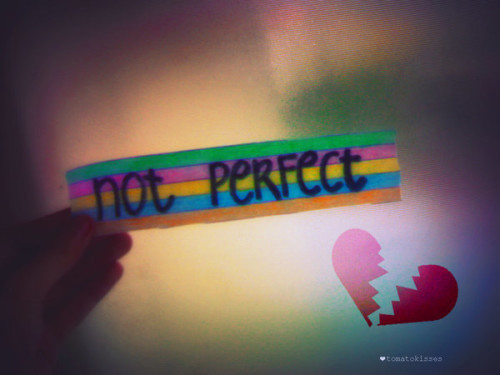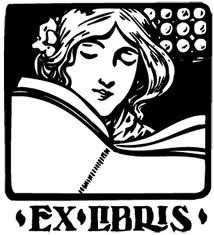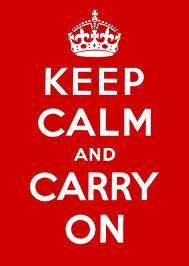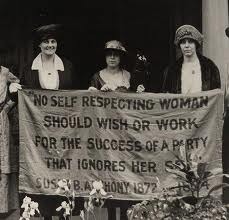P.A. Wilson's Blog, page 17
April 22, 2013
Character flaws, your hero must have them
Character flaws in fiction are desirable. If you characters don’t have flaws, they don’t have dimension. Building in flaws makes it easier to build story. I’m talking about your villain here as well as your hero.

Character flaws – hero
This is the common one people discuss. A perfect hero is boring and makes for a boring story. That’s why Superman has his Kryptonite. The flaw in your hero needs to be something that limits their ability to meet the challenge of the story. A romantic heroine who can’t bring herself to trust men, has a great flaw. Now she has to battle her own demons as well as whatever the story throws at her. Character flaws give you more to work with in the story.
Character flaws – villain
It may seem contradictory that your villain needs a character flaw. After all isn’t the fact that they are the villain flaw enough? Here’s the thing, your villain doesn’t know they are the bad guy. In fact, the villain may not necessarily be a bad guy.
Let’s first talk about the stereotypical villain. They are the bad guy and they know they are getting in the way of the hero. Remember that mostly they are trying to be the hero of their own story. So, what kind of character flaws will they need to battle? What about the criminal who is a compulsive gambler?
Now, let’s talk about the character flaws applicable to the benign villain. This is the mother-in-law who constantly meddles in the marriage of her son. She’s the villain because she’s trying to convince them to have children when the hero – her daughter-in-law – just wants to have a few years to build the strength of her marriage before adding children. Her character flaw could be gossiping, or compulsive shopping.
As you work with your characters, think about a flaw or two to add dimension.
The post Character flaws, your hero must have them appeared first on P. A. Wilson.
April 17, 2013
Beta reader, the finer points
A beta readers is the person who reads your book after you think you’ve made it the best it can

be. This is about what to ask them and what to expect.
The beta reader, why find one
When you have finished the revision you’ve made from your critique feedback. You polish your story and you proofread. Are you ready to submit to an agent or put on line? Not quite.
Up to now, your story has been what you want. You’ve received craft feedback from other writers. You’ve honed it for the story in your head. Now it’s time to find out what the fans of the genre think about it; that’s what a beta reader will do for you.
The beta reader – where they hang out
The good news is that you can ask online for people to read your book. The bad news is you can find people online to read your book. Like anything in life, there are good and bad beta readers. You need to find one or two – or three – that you trust.
The best beta reader is someone who reads the genre and isn’t related to you, or your best friend. Your friends and relatives may not be able to tell you what they don’t like. Or, you might not be able to hear what they say.
I advise you to go online to places like GoodReads and ask for readers. Try a few people out and find your beta reader group.
What you need to ask for from your beta reader
It’s not enough just to find someone and ask for feedback. You don’t know that you’ll get usable feedback. So give some direction.
Ask them to look for the things you are afraid to find. If you think your characters are unlikeable, ask the beta reader, If you worry that your story drags, ask the reader to tell you where the story gets boring.
Ask them for feedback on things you think you did well.
Then you can ask them to give you whatever feedback they want
What to expect
Your beta reader will give you feedback, some you’ll like, some you won’t. Just like a critique, you might have to digest the information before you decide to make changes.
One difference between the critique and the beta reader is that your critique partner knows the craft and can explain what they mean. Your beta reader is just a reader and won’t know what to clarify. They might just say they don’t like something.
If you find yourself thinking “I don’t agree”, think about the fact that these readers like the genre. If they don’t like something, your other readers probably won’t.
The other thing you might hear from your beta reader is “I love it!” Don’t argue with that.
Good luck.
The post Beta reader, the finer points appeared first on P. A. Wilson.
April 15, 2013
Critiquing – getting and giving advice
Critiquing your story is the process of getting advice on the story. Knowing how to hear advice and how to give it is key to improving the story. I think it’s important to get this advice from another writer and save your readers for the last pass before submitting or publishing.

Why critiquing? Why not just editing?
The purpose of the critique is to get feedback on the craft of writing. This is sometimes called story editing. The general term for editing seems to have come to mean line-editing. When someone goes through and finds problems at the level of sentence and word.
Step one, finding a partner
There are different ways to critique work. I have been involved with a group that reads and critiques chapters, or pages, of work. I changed to having someone look at the whole story rather than just pieces.
Your first step in getting advice is to find a critiquing partner or group that works for you. I think you need to test out a few ways before you find what works for you. Look online, or to local writer’s groups for help.
Critiquing is about the story not about you
If you only take one thing from this post, this is it. Whether you are giving a critique or getting one, it’s always about improving the work. If you start to feel like it’s a critique of you, find a new group/partner.
Critiquing needs to deal with things that need to be fixed. That means you’ll hear about what’s wrong much more than what’s right. You need to be thick skinned enough to hear what people are saying.
You don’t need to agree, but you need to listen.
Language in critiquing that can help
Three tips for how to express your advice when giving critiques – I also try to hear this no matter what words are used.
When X happened in the story I didn’t feel it was supported earlier. This replaces ‘you didn’t set up this event’
The character doesn’t seem to feel enough emotion, which meant I couldn’t connect. The replaces ‘your characters are two dimensional’
The ending came out of the blue. This replaces ‘you didn’t build the climax strongly enough’
See how taking the YOU out of the words removes the personal attack.
Critiquing – the final tip
The interesting thing about critiquing is that you don’t need to change anything. It is your story, and you know what you are trying to do with the characters, setting, and plot.
I will often just put aside the information until I can digest it. In most cases, what my critique partner has found is valid, but their suggestion for fixing it is off the mark. I write mystery/thrillers and I do want to have misdirection, so when I hear ‘I was surprised that X happened’ it’s a validation of what I was trying to do.
I have learned most of my craft through the process of writing and critiquing. I learn almost as much from critiquing other authors as I do from receiving critiques.
Good luck.
The post Critiquing – getting and giving advice appeared first on P. A. Wilson.
April 10, 2013
Writing your book, revision
I’ve given tips on getting started and on writing the first draft. The next step in writing your book is to start the revision. I do this in layers so I can concentrate on the big issues then work my way down to the commas and typos. It’s like reducing the roughness of the sandpaper when you make furniture.

Writing your book, the first pass of revision
Because I get the first draft out of my head and onto the page as fast as possible, I find exciting things that need to be included in the plot line and I sometimes find I’ve skipped some scenes.
While I do try to get all of the story out, I don’t worry much about conflict and ‘showing not telling’ when I do the first draft. So my number one goal in revision is to make sure the story in on the page and the threads are woven in. I don’t worry about the artistry of the weaving for the first pass
When writing your book, I recommend you make notes (don’t make changes yet), that answer these three questions:
what conflict needs to be introduced
what giant leaps of story need to be connected
what new action needs to be woven in
There is a fourth question that I rarely have to deal with because I’m a plotter – what needs to be taken out?
In my book Off Track, I initially had Jode as a walk-on character. No spoilers, but during the first draft, he let me know that wasn’t good enough. I listened, and in first revision pass I built him into the beginning of the story to support his new role.
When you are writing your book, take the notes and then do your first revision pass with the whole book in mind.
Pass 2 to infinity
Maybe not infinity, but the number of revisions will depend on the writer and the book. I’ve done everything between three full rewrites and just a few polish passes. Take care when writing your book that you don’t get into editing paralysis. Get someone to look at the book after you think it’s good (not perfect) and listen to their advice. I’ll write about the value of critique in another post.
The revision passes when writing your book are:
after the ‘fixing the story’ pass you need to put the story aside for a while to get some distance – write another book – then go through and make notes about how you feel about the characters. You need to empathize with them so your reader can.
After you’ve built up the characters, go through and see if the reader will know where your story takes place, maybe you’ll need a little revision on the setting.
Now you’ve dealt with conflict and story, characters and setting, it’s time for the fine sandpaper. This is where I start looking at the artistry in my writing. Changing the wording, looking for typos and grammar.
The process I recommend when writing your book recognizes that you need to polish, but there’s no point in making a sentence perfect until the story is strong. Why waste time on parsing a sentence that may not make it to the final version.
Good luck. If you have any questions, leave them in the comments and I’ll answer them.
The post Writing your book, revision appeared first on P. A. Wilson.
April 8, 2013
Writing your story, getting through the first draft
The first draft is the hard part for writers. Writing your story, no matter what the story is, is a process of getting words on paper and then fixing them.

In my last post, I talked about how to get started. The next step in writing your story is to get the first draft out of your head and into a form that can be revised.
Writing your story one word at a time
My process is to dump the first draft out of my head onto the screen. I advise everyone to do this, even though I know it doesn’t work for some.
For me, trying to find the best word, or insert the dazzling dialogue while I go through the first draft slows me down. In fact, it can bring me to a complete stop.
Why? Here are three reasons slow writing the first draft doesn’t work.
Internal editor
The little voice inside that tells you the work is bad. That part of you built out of all the voices that told you you weren’t good enough. When you are writing your story, you need that voice, but not in the first draft. By moving slowly, you give that voice power.
I have tried a few tactics to keep the voice out of the first draft, and the one that works best is to agree with it. I know that sounds counterintuitive. The thing is by arguing you keep the conversation going. Anyone in sales or service knows how to deal with difficult customers. You acknowledge the facts and the feelings. You don’t argue with them about the problem.
The next time your inner editor tells you that the words are stupid, or the plot twist is obvious, try answering this way.
Thanks for pointing it out. You are right, it’s not the best I can do. I need to get the bad writing on the page so that I can get the good writing there too.
The efficiency fallacy
If you are anything like me, you hate wasting time. I used to think that by taking my time with a first draft, I could avoid a revision pass or two. When writing your story, remember that the success of a book comes from the revision and rewriting. Until you have the whole story out, you don’t really know what kernels of brilliance lie in the words.
You won’t save any revision time by trying to get it right on the first pass
The first draft is crap fallacy
So, that inner editor told you all of the words you put on the page in your rush to get the first draft out were crap. Here’s what I hope you’ll find when writing your story, the first draft isn’t crap.
Even though I know this is a fallacy, and it’s been true for all but one of my books, I still think the first draft is going to be embarrassingly bad when I start revision. The first drafts need work, but they tend to be 80% of the way there. And the story is complete, which means I can focus on the writing in revision not the story.
The one book that didn’t fit this pattern was Hubris. I rewrote it three times. That’s right, a complete rewrite. It was one of my first books and I honed my craft on it. There was something about the characters that I couldn’t let go. The final rewrite was fast, the revisions were straightforward and I’m proud of the results.
When writing your story if something isn’t working, try a new process.
Good luck
The post Writing your story, getting through the first draft appeared first on P. A. Wilson.
April 3, 2013
Writing a book, overwhelming?
 I meet so many people who say they are thinking of writing a book. They don’t know where to start. Or where to finish. Or… it’s hard to know what to do. I always try to give them some advice (and I’m putting together an online course to help), but I see that look in their eyes – it’s daunting to think about, but like most projects, knowing the next few steps is all it takes.
I meet so many people who say they are thinking of writing a book. They don’t know where to start. Or where to finish. Or… it’s hard to know what to do. I always try to give them some advice (and I’m putting together an online course to help), but I see that look in their eyes – it’s daunting to think about, but like most projects, knowing the next few steps is all it takes.
Where to start writing a book
This isn’t the answer about where to start your story; it’s about what the first few steps are to that journey. The one that ends with the words The End.
I’m a plotter and so I think people need to start from a place of structure. If you are a fly by the seat of your pants author, the advice is just start writing. If you want a bit more structure when writing your book, and you haven’t been able to find a course that helps with the basics try my tips.
What not to worry about at the beginning
The more you write the easier it gets. Don’t worry about grammar, about repeating, themes, motifs, or even showing not telling at first. All of that is fixable in the revision stages. The first thing you need to do when writing a book, is get a draft on paper. You will have a hard time fixing the story while it’s still in your head. You will find it much easier when it’s on paper, or on screen.
First three steps
The first three steps in writing a book.
who are your characters and what do they want? It’s important to know from the beginning what your hero (protagonist) wants that your villain (antagonist) won’t let them have.
what’s the genre? Are you writing a mystery? a romance? a high fantasy? It’s important to know what genre because each one has conventions. You can mix the genres – lots of urban fantasies mysteries as well. You still need to work within the conventions of the genre.
what’s your world? The setting of the story will change the story. If you set your story in New York, it will be very different than a story set in a small town in Montana.
Looking at these first three steps can help reduce the feeling of being overwhelmed. Answering these three questions sets you up to actually put words on paper.
Good luck.
The post Writing a book, overwhelming? appeared first on P. A. Wilson.
April 1, 2013
April Fools – my least favorite day
April Fools jokes, some people plan them all year, some are funny and some flop. 
April Fools day
So I always wonder if it’s supposed to by April Fool’s day – as in a day belonging to fools, or April Fools day – as in a day when people are fools.
By now it’s over this year. The pranks and jokes have either made people laugh and are going viral around FaceBook.
Here’s one I can only think is a joke. YouTube deletes all videos. Although it was published on March 31.
Taking April Fools to the next level
Things I hope never happen on April Fools day.
Alien invasion. We won’t believe it until it’s too late and we’re all just food for giant lizards
Peace on earth – wouldn’t it be cool just for a morning?
The second coming – well, it’s also a little to close to Easter for that
Free energy discovered
Zombie apocalypse
You Tube deletes all videos
Facebook changes the rules again
The big 5 publishing houses figure out how to work in the 21st century
Ice cream becomes a diet food
The real reason I hate April 1
I’m big on trust. I don’t like the idea that I have to second guess everything that happens on that one day of the year. Sometimes the most interesting tidbit of information turns out to be a joke.
I like the idea of having fun. I don’t so much like the idea of pranks because I find most of them to be mean. The victim really hasn’t much of an option but to laugh it off, or be labelled a grump. I even like the idea of having a day of fun, but I’d much rather the equation was reversed. What about the idea of 364 days of fun and one morning of solemnity?
So, it’s over for this year. How did you fare? Anyone have a great April Fools prank that they want to share?
The post April Fools – my least favorite day appeared first on P. A. Wilson.
March 20, 2013
Generation gap, it never closes
 The Generation Gap is one of the few things most of us experience from both sides. As we age, we float from the rebellion side to the judgement side.
The Generation Gap is one of the few things most of us experience from both sides. As we age, we float from the rebellion side to the judgement side.
Why is there a generation gap?
I think it’s part of human behavior. As teens and young adults, our role is to challenge the status quo and question things our parents take for granted.
As adults, we are tasked with making sure the world is a safe place for the next generation. We know how dangerous it can be because we survived our own youth.
First sign you’ve crossed over
This isn’t about age, some people never cross over the gap. You’ve crossed the generation gap the first time you hear the words coming out of your mouth as the same words you heard going in your ears as a youth. We have suddenly moved from challenging the world and trying to make it a better place, to trying to make it a safer place. Status quo feels safer than change.
The status quo isn’t always where the line is drawn. From the other side of the generation gap, some people want to return to the world of their parents – the one they rebelled against as teenagers and young adults.
Making a bridge over the gap
I remember when I was trying to change the world. It was about optimism and hope. I thought we could solve the problems that made life dangerous and hard for some people. I took the idea that every parent wanted a better world for their kids at face value.
My parents wanted to keep me safe, as do all parents. They saw safety in terms of what they knew. They saw danger in terms of the unknown.
To build a bridge across the gap, I think we need to trust each other. The older generation can end the echoes of ‘the younger generation is lazy, isn’t committed, isn’t…’ whatever they think is valuable. The younger generation needs to remember that we did survive our youth and we have some appreciation of the dangers, and how easy it is to not survive.
What do you think? Can the generation gap be closed?
The post Generation gap, it never closes appeared first on P. A. Wilson.
March 18, 2013
Offended? What do you do?
We all get offended, no matter how thick our skins. Is it always necessary to state your feeling, or is it part of free speech to allow offense? I’m sure we all know people who are quick to jump in when they feel they’ve been offended, or a group has been offended in some way.

Easily offended?
In life there are many many ways to find yourself feeling offended. It’s that question that lurks in the back of your mind, “did I really hear that?”. So, what does being easily offended mean? To me it’s about taking offense for others as well as yourself.
In some circumstances, it can be tempting to feel as though the offended person is unable to defend themselves. In some circumstances, we are actually offended because of something in our history. If you find yourself feeling offended multiple times in a day, you may want to change your environment.
Free speech changes everything
I think free speech is about being able to express your opinion on any subject. There are things that no one wants to hear, but everyone has the freedom to say what they believe. When things are said that give offense, is it always effective to react?
In my experience, reacting doesn’t often stop the offensive behavior. Ignoring is more effective.
What is the right reaction?
There is no right reaction. For me, I usually ask myself why I’m offended. Often it’s about baggage I bring to the interaction. I get offended when people demean anyone – but I tend only to react when I am being demeaned as an individual or part of the group. I hate it when someone adds a suffix to a job to indicate a woman is doing it. I know that means using the male version, but I would prefer to be known as an author rather than an authoress because I hear the ‘not quite as good as a man’ in the ess. I know that’s my baggage.
What offends you? How do you react?
The post Offended? What do you do? appeared first on P. A. Wilson.
March 15, 2013
Feminism, are we suddenly back in the old world
 It’s been a long time since bras were in flames. Feminism isn’t about making men feel bad, it’s about keeping in mind that women are people, not roles.
It’s been a long time since bras were in flames. Feminism isn’t about making men feel bad, it’s about keeping in mind that women are people, not roles.
Feminism is not equal to man hater
Let’s start with this. The fact that people want equality and respect, does not mean they hate the people who have equality and respect.
The whole movement is simply to highlight the fact that women are more than just mothers, sisters, and sexy secretaries.
What sparked this?
There are little things that hit the media all the time that reflect the roles we place on gender. I think it’s lazy advertising. It’s not just women, although advertisers do seem to think we’re particularly stupid.
The thing that brings out my feminist anger is when it’s blatant. Samsung’s presentation with bridesmaids representing women using smart phones for girly things. And this little gem.
“The Tablet comes preloaded with applications so you can just turn it on and log in to cooking recipes or yoga,” Mani Nair, the Associate Vice President for Marketing at Eurostar, which manufactures the devices told The Media Line. “It makes a perfect gadget for a woman who might find difficulties in terms of downloading these applications and it is a quick reference.”
I’m expecting to see something along the lines of ‘we’re just joking; see feminists have no sense of humor.’
What does this mean for women?
Here’s the thing. For the two companies, there isn’t any real need to change. There are women who will love this. There are women who will hate it, and there are women who will dismiss it. Feminism isn’t about putting all women in one bucket, it’s about allowing women the same freedom as men – to be who you are without penalty.
What do you think? Is feminism losing ground? Or is it something that will be with us always. Will you buy the Samsung phone?
The post Feminism, are we suddenly back in the old world appeared first on P. A. Wilson.



